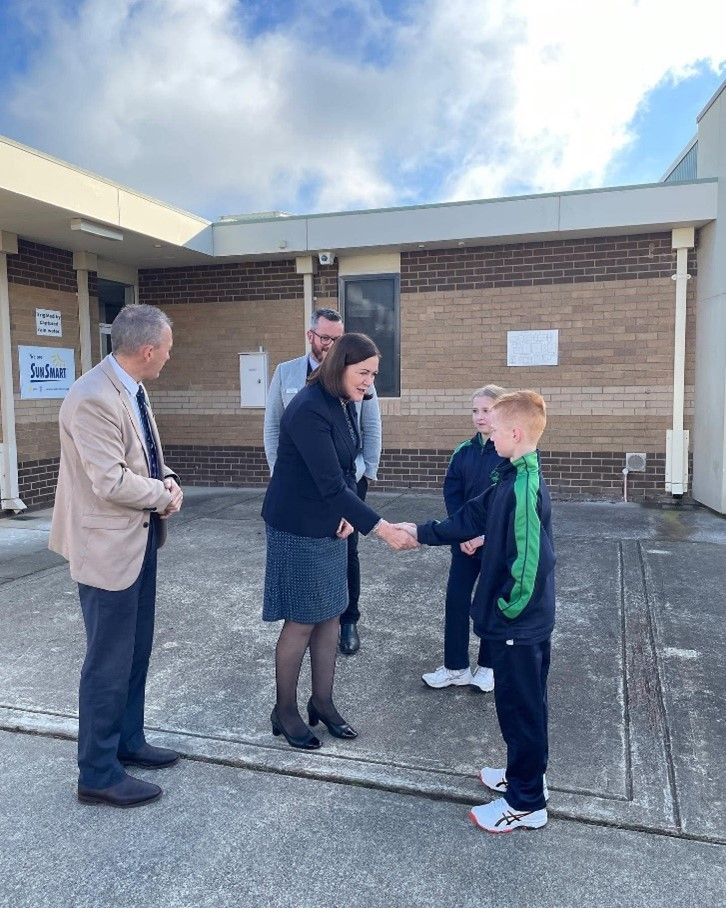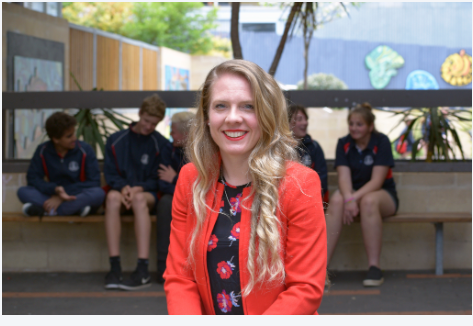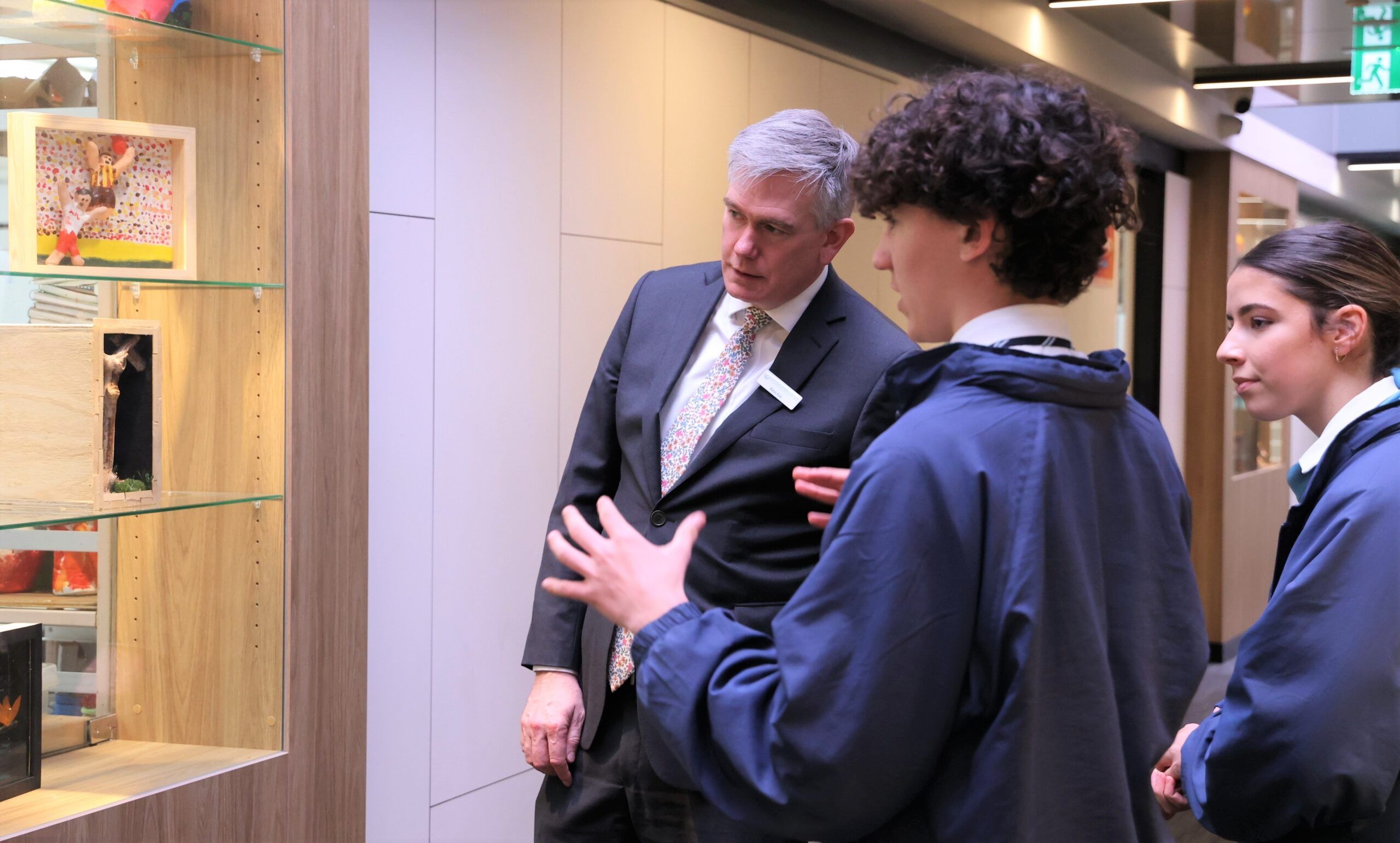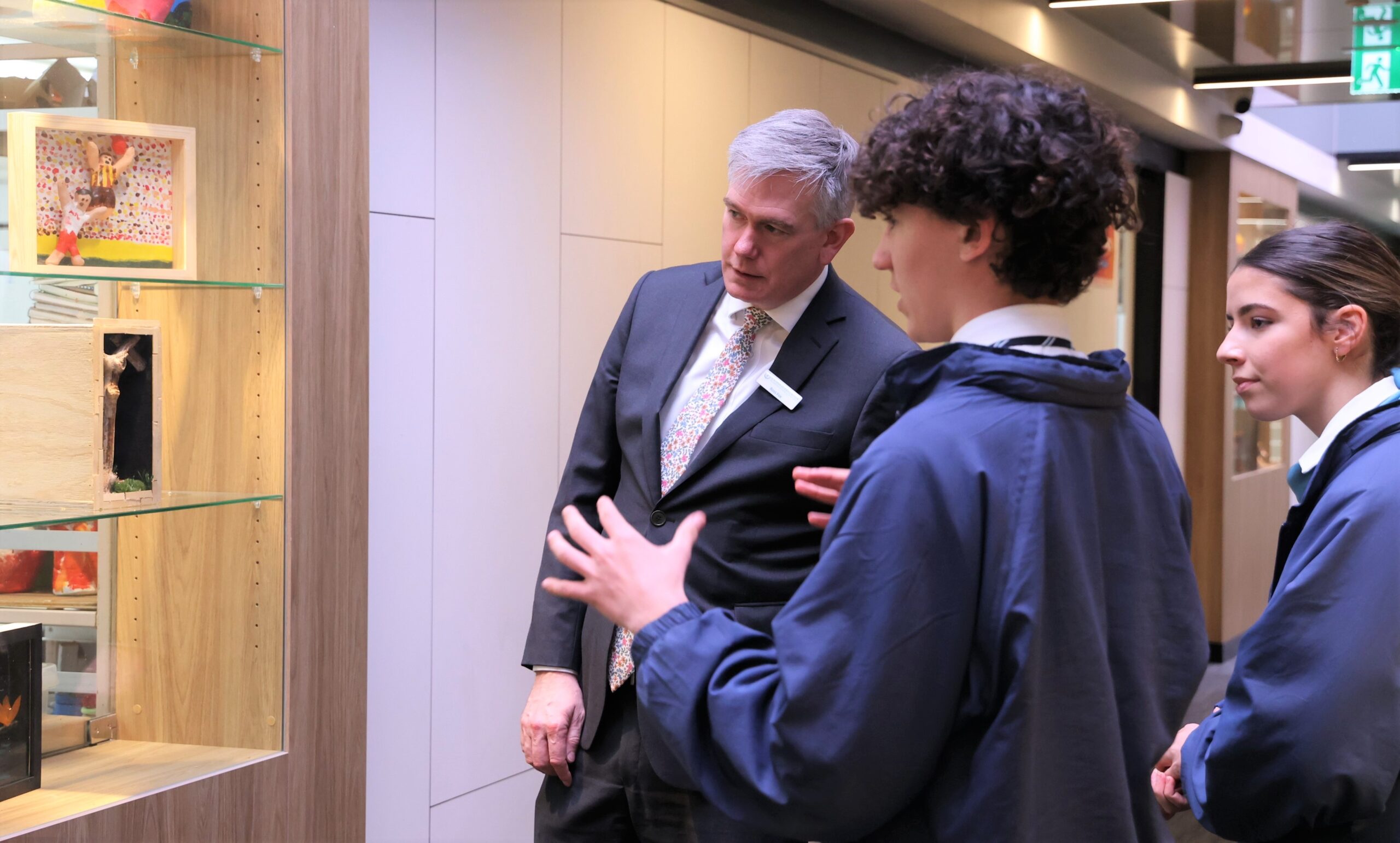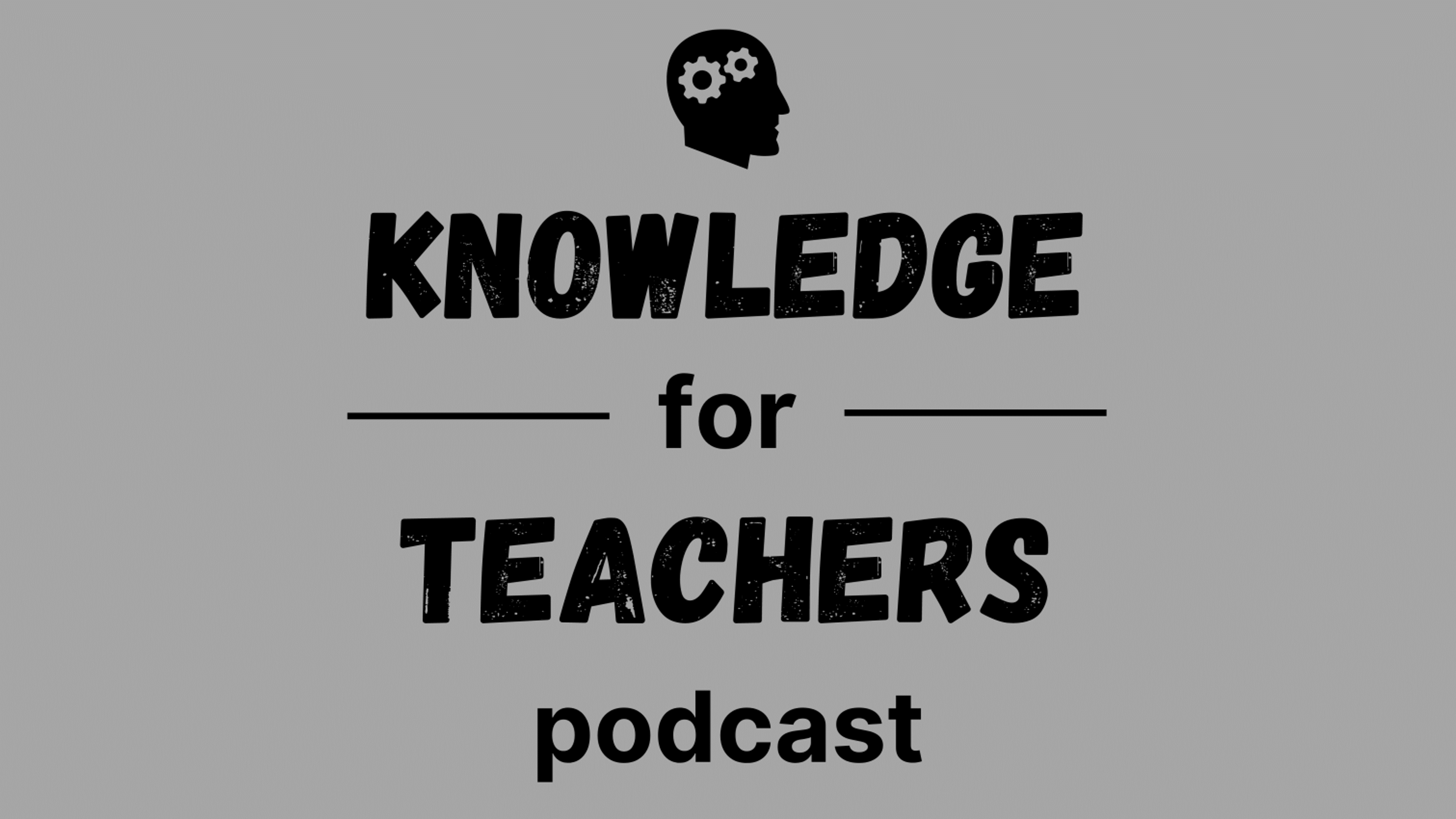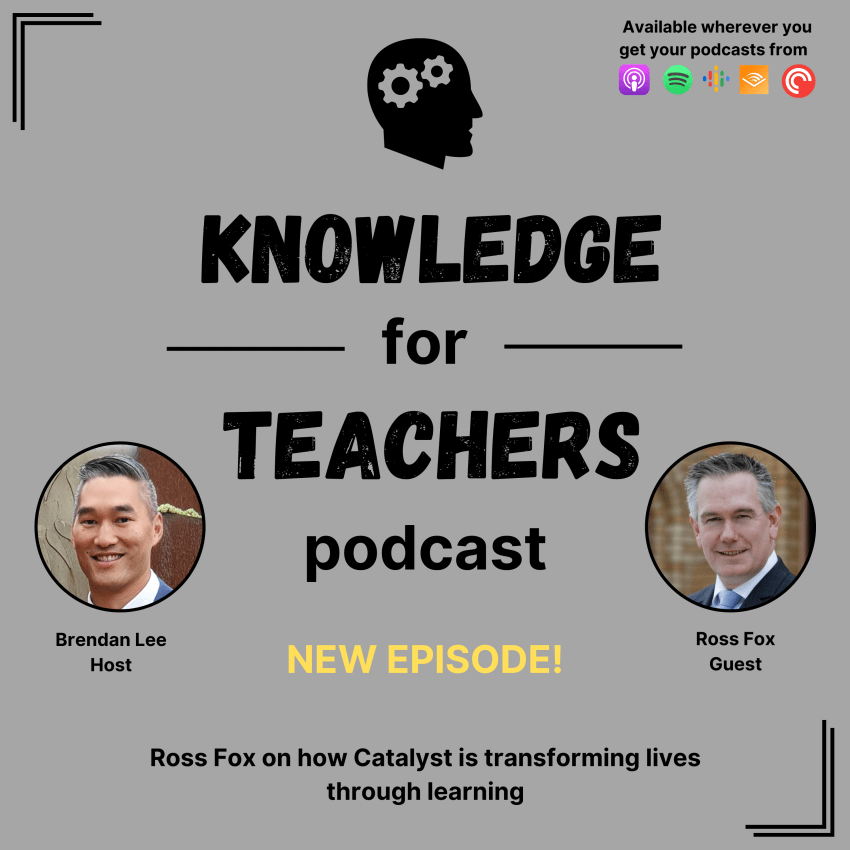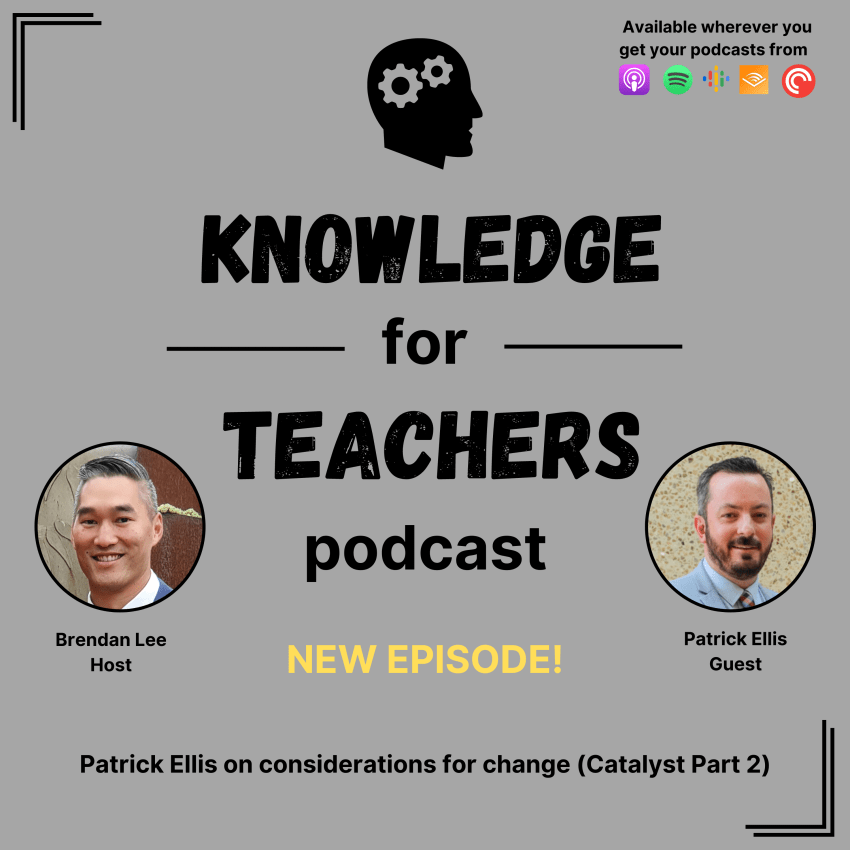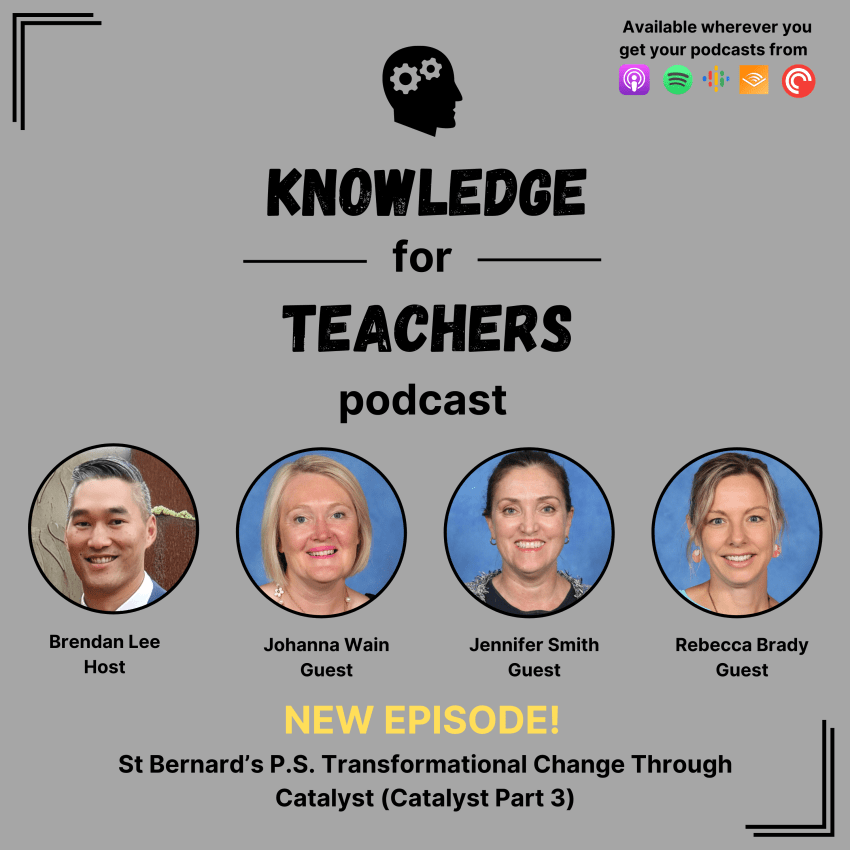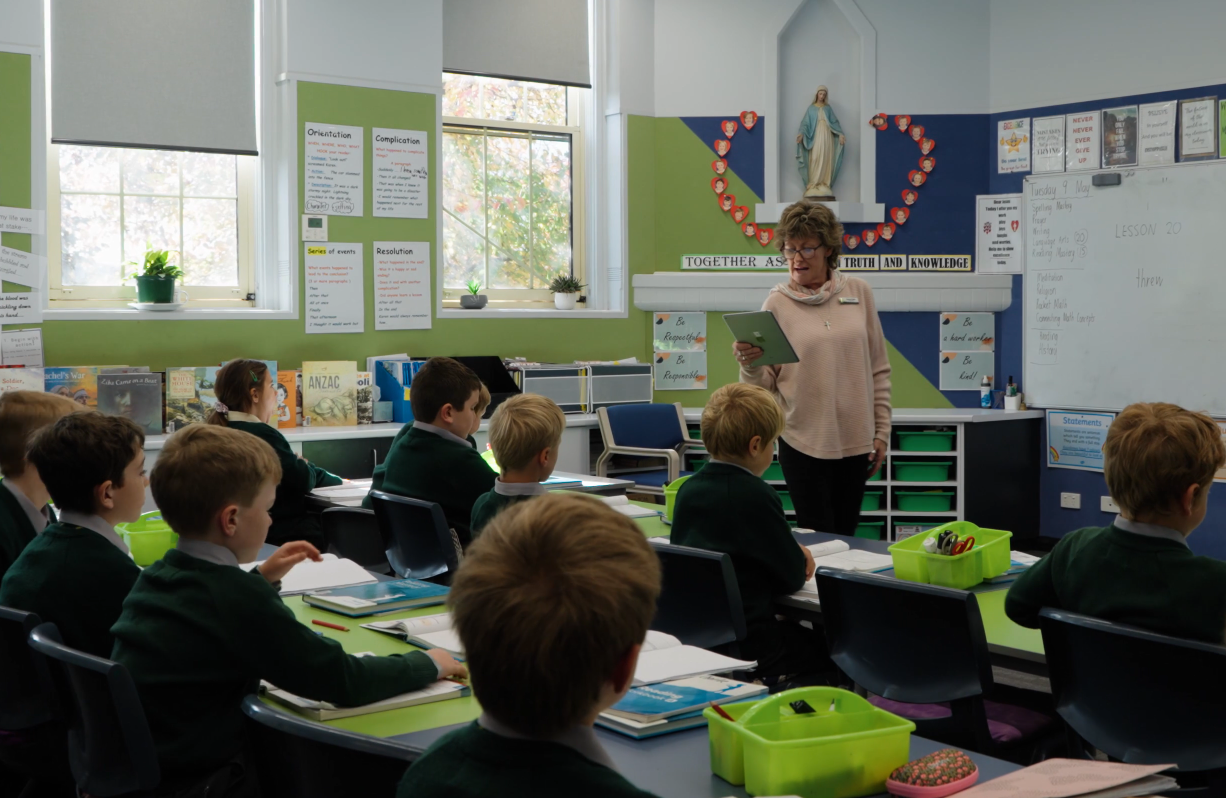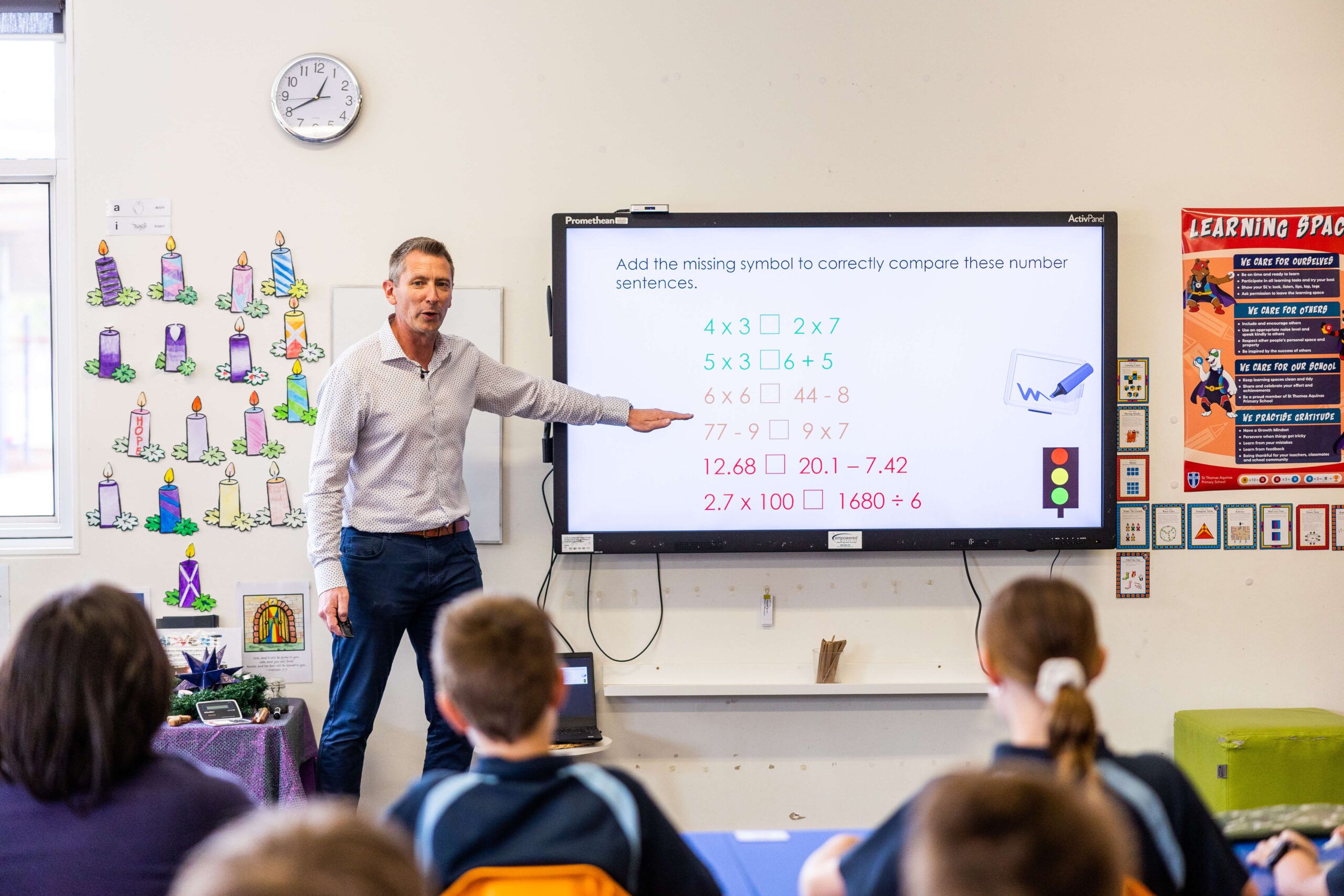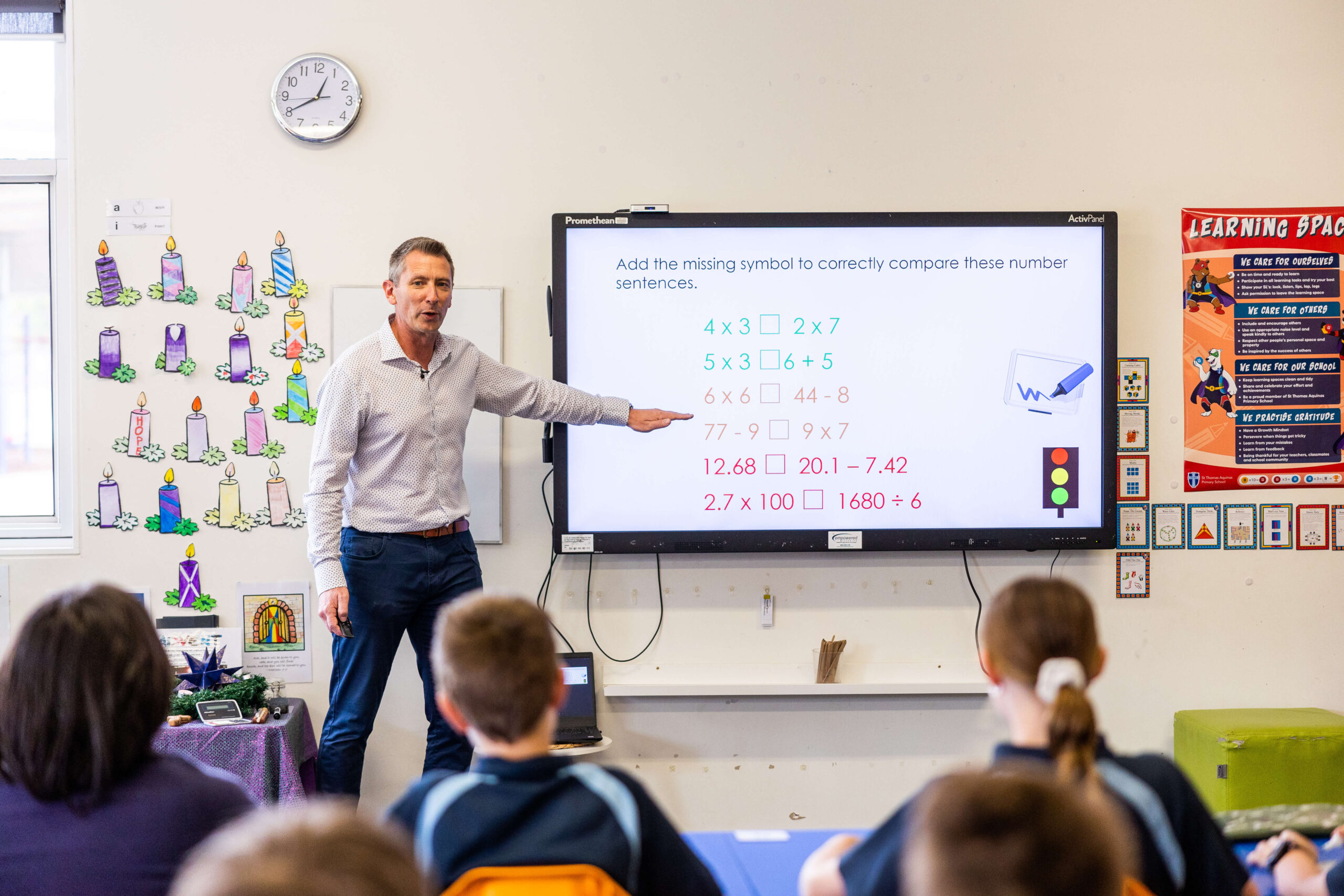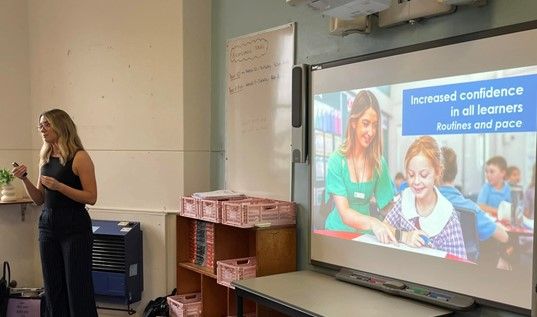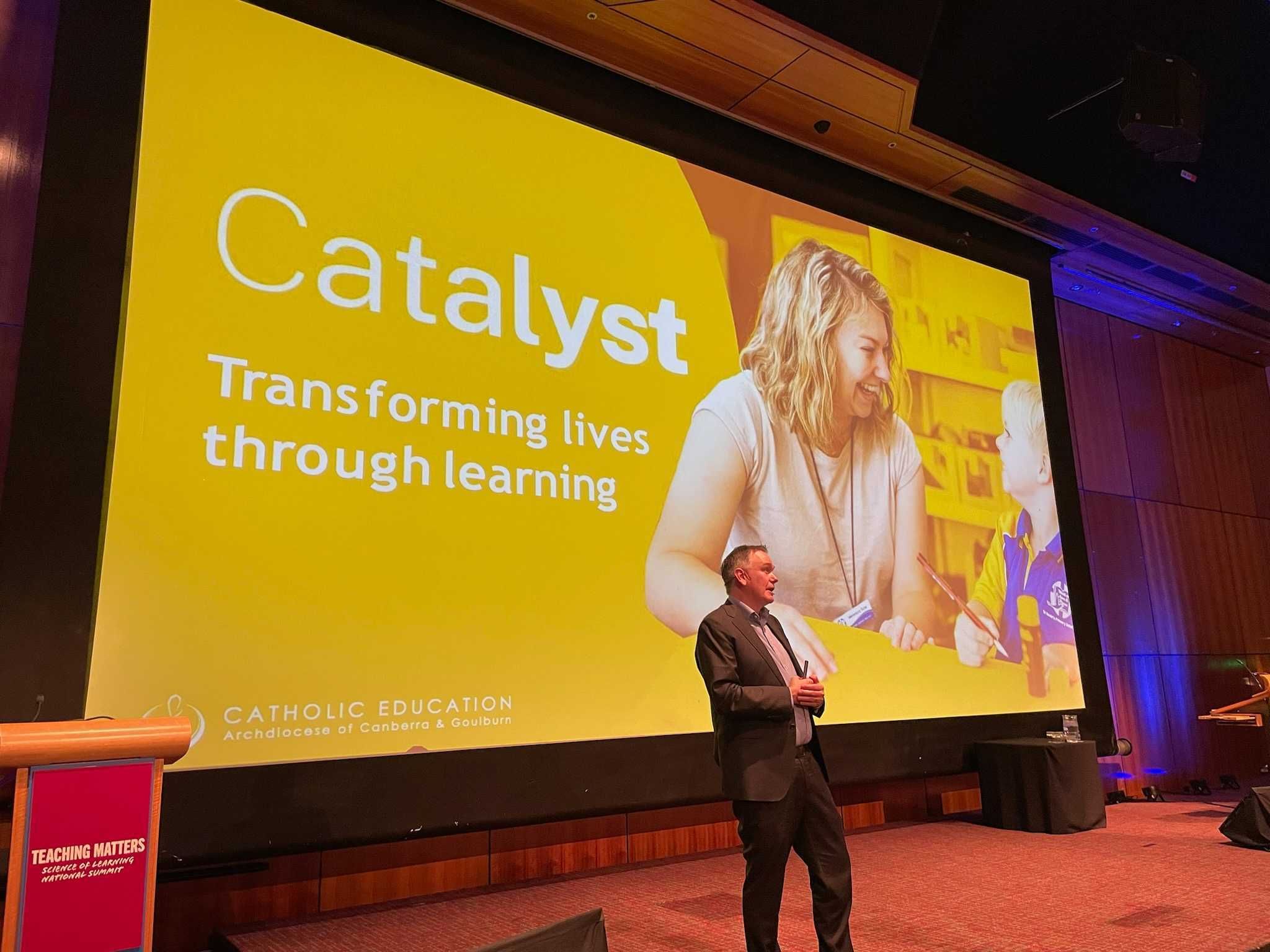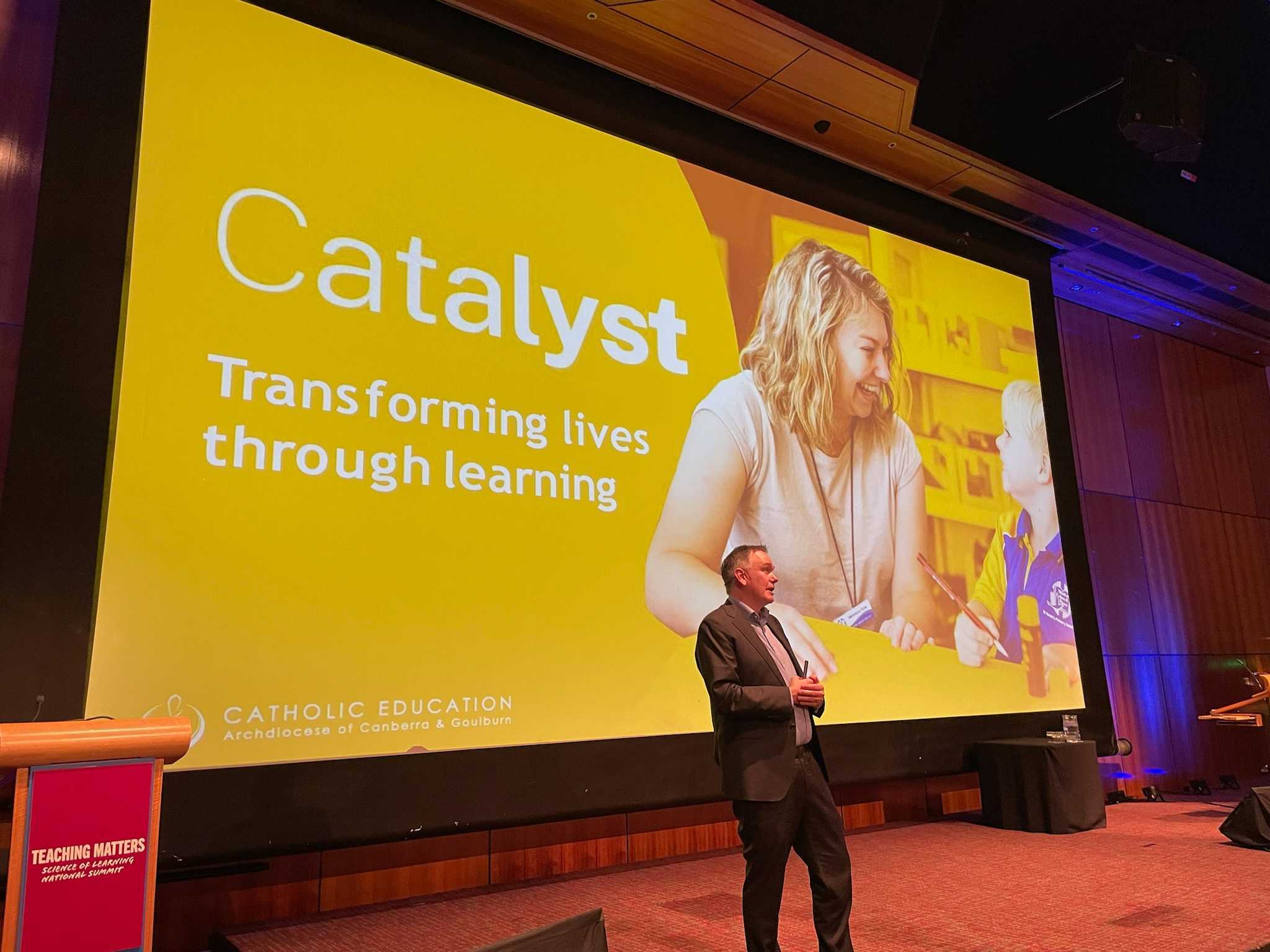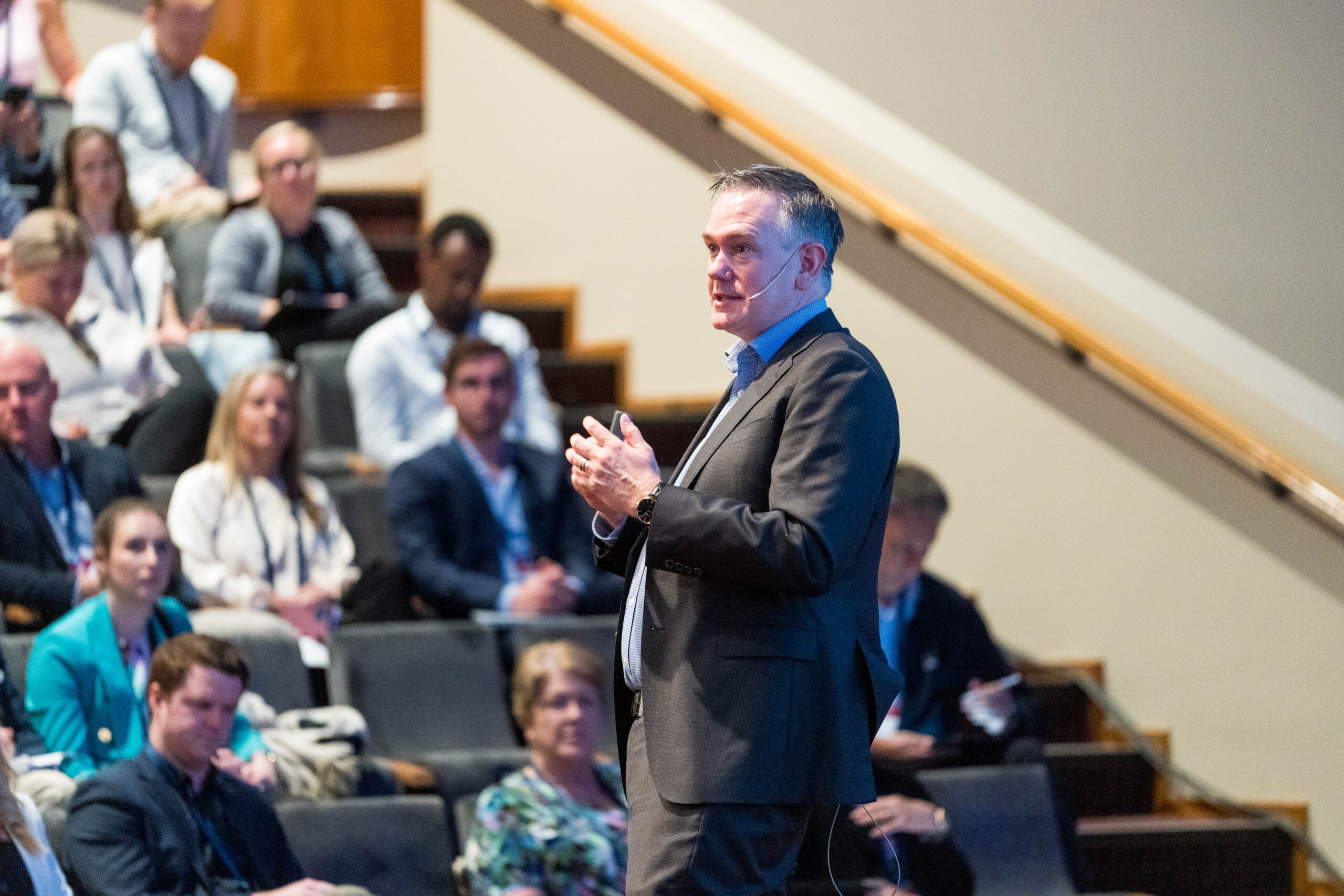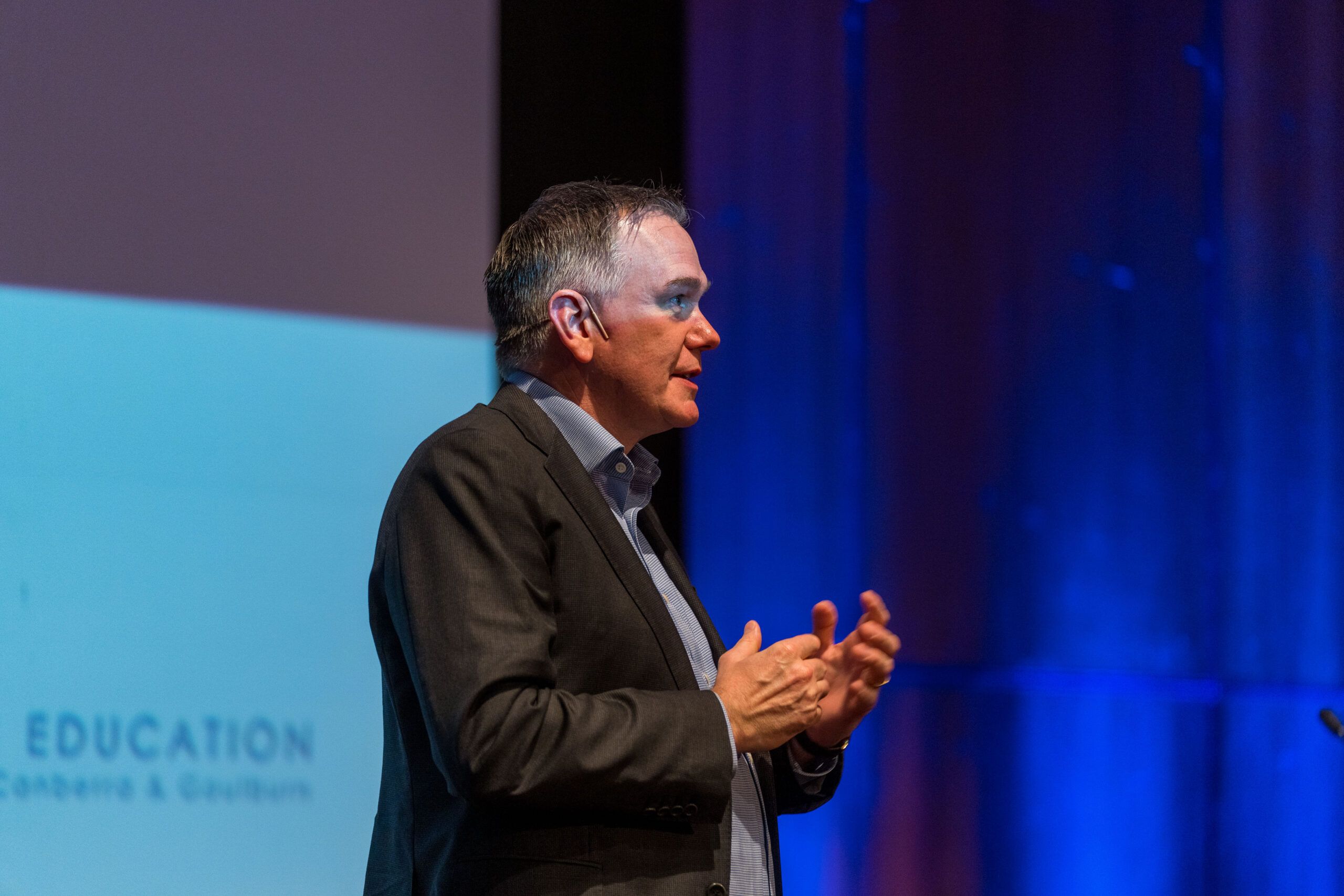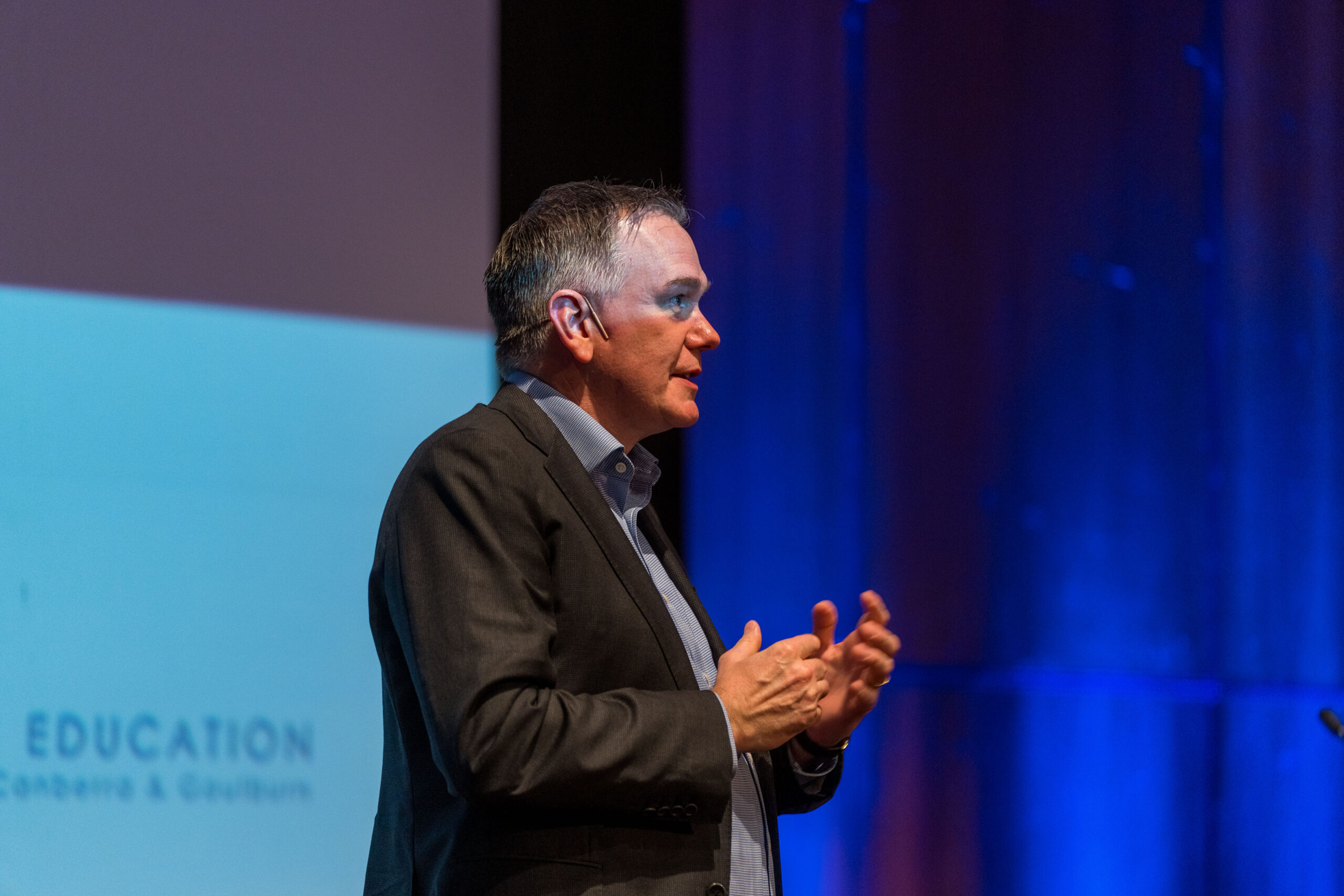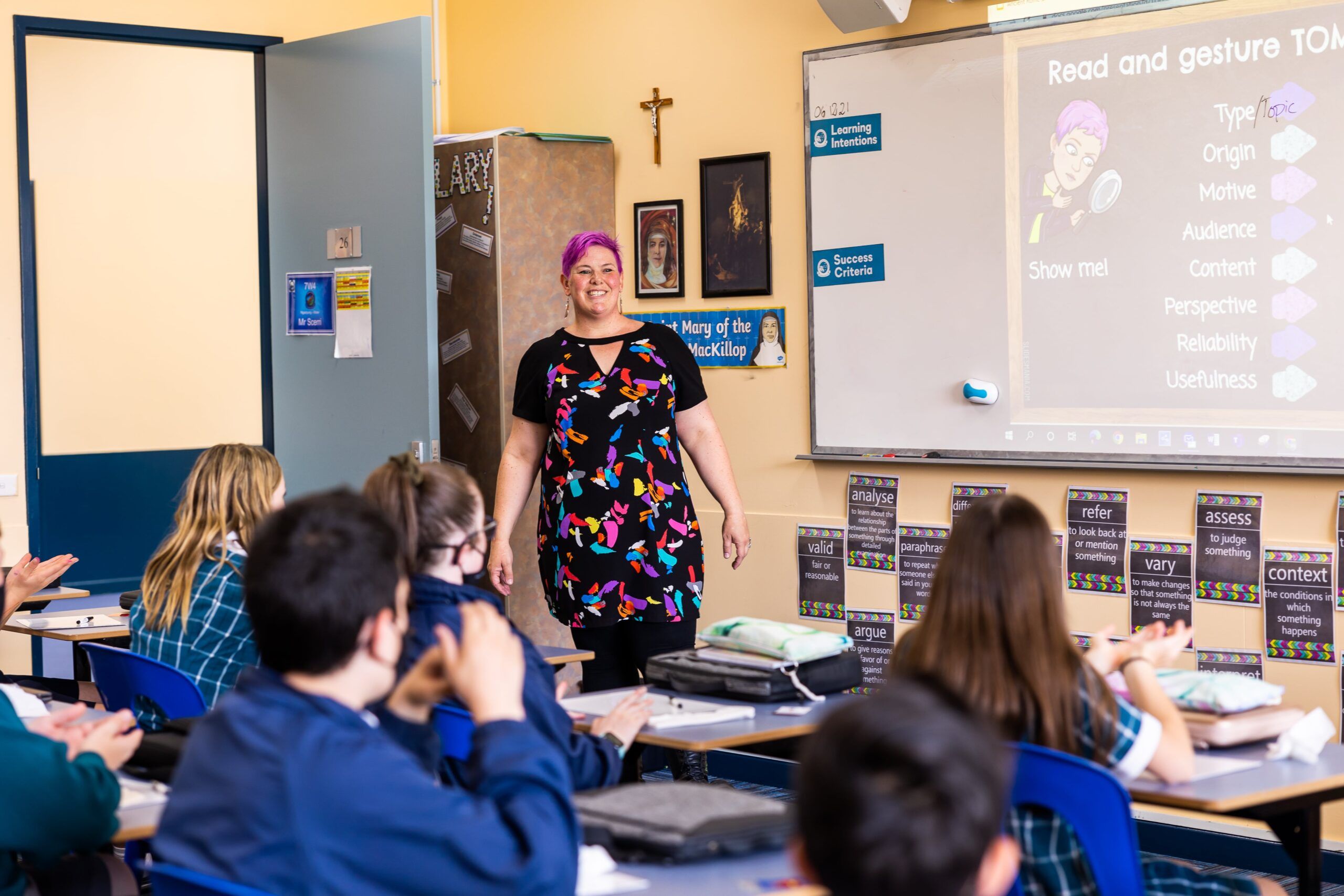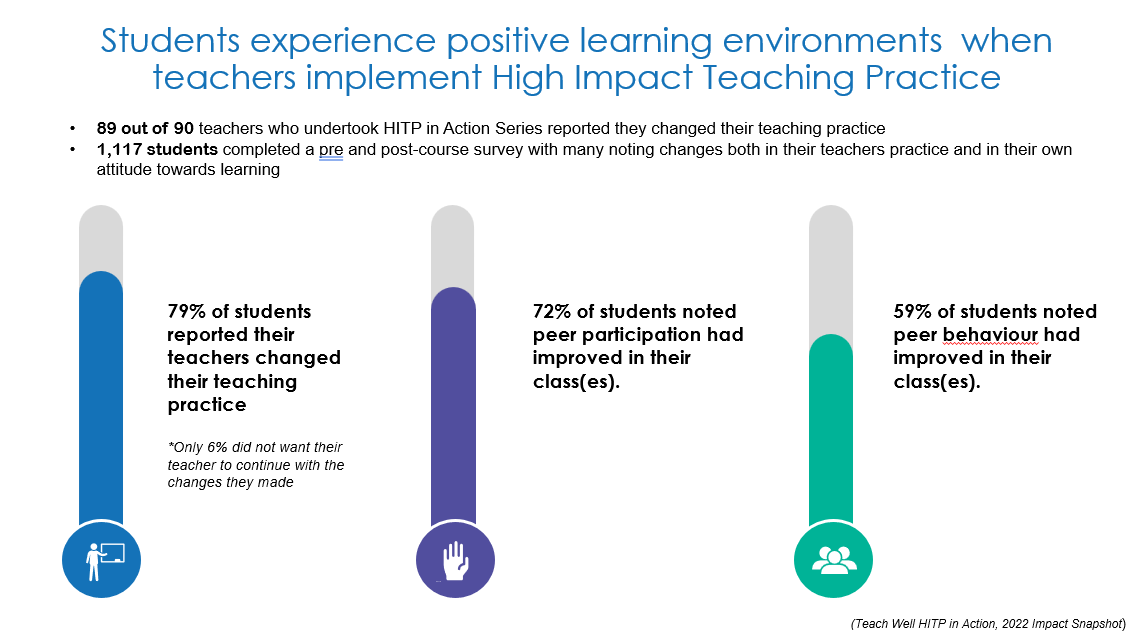Sharing Catalyst with the Federal Shadow Minister for Education
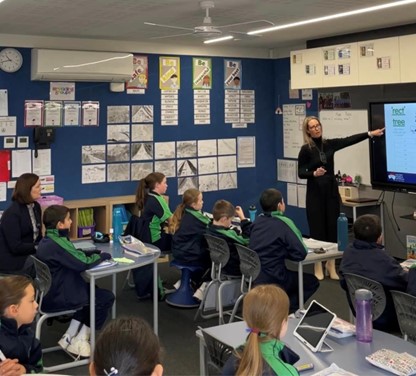
Good Shepherd Primary School, Amaroo was delighted to host Senator Sarah Henderson, Shadow Federal Education Minister on her visit to understand how evidence-based teaching practice translates to the classroom.
Senator Henderson toured the school with the Principal David Austin, Education Lead Patrick Ellis, other leaders, teachers and Year 6 students to view the impact that the system project of Catalyst has had on teaching practice and student learning.
Senator Henderson observing teacher practice
Teachers across Kindergarten, Year 1, 4 and 5 demonstrated explicit teaching practice they had learnt through High Impact Teaching Practice professional learning. Senator Henderson also talked to students who shared their experiences with the changes in teaching practice and how it has impacted their learning.
The whole school was delighted to have the Senator visit and for her to see firsthand the positive impact Catalyst is having on teaching practice and student learning. Senator Henderson shared that Catholic Education Canberra-Goulburn is leading the nation in the evidence-based approach to teaching and she is very supportive of our continued effort and focus in this area.
Thank you to Principal David Austin and his staff for hosting the Senator on the very first day of school for the term.
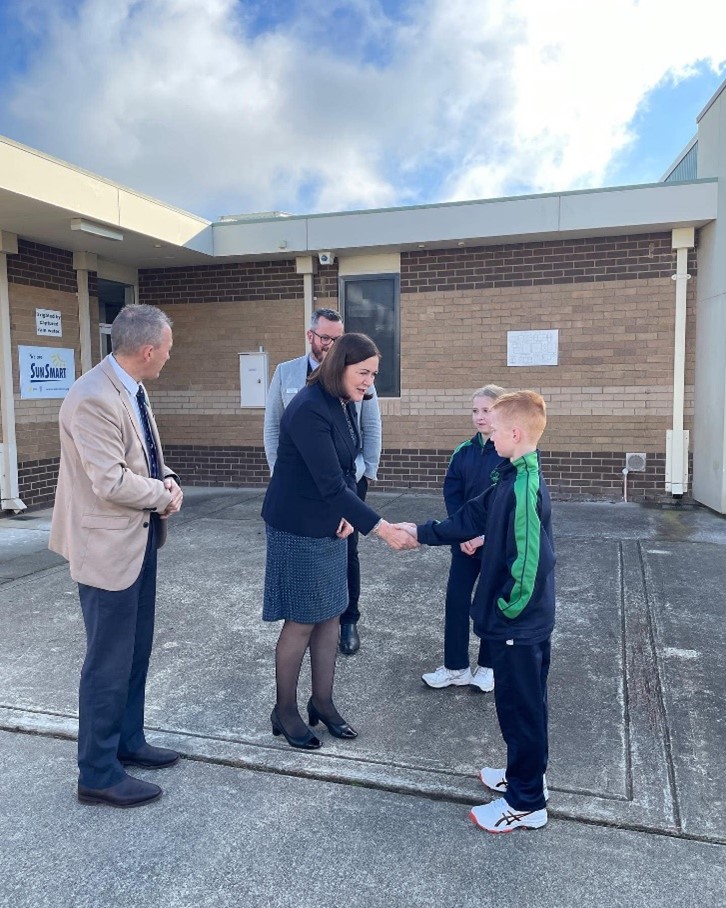
Senator Henderson meeting students
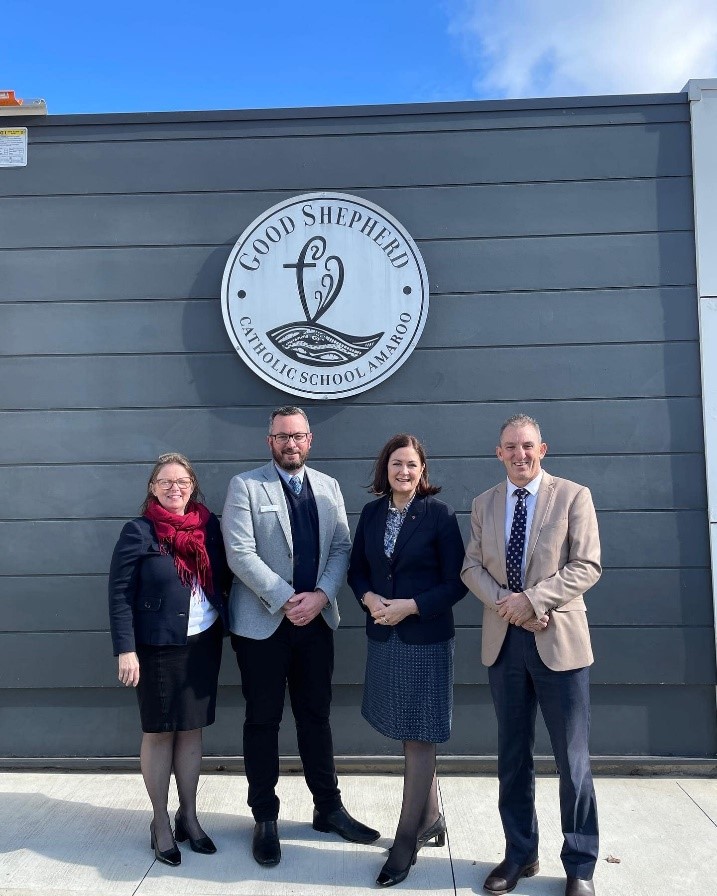
Senator Henderson with Patrick Ellis, Education Lead, David Austin, Good Shepherd Primary School Principal and Jane Kilmartin, Consultant to CECG Director
